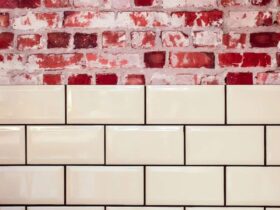The recommended thickness for slate on a pool table is one-half inch to two inches. A thicker slate is better as it is stiffer and less likely to flex, allowing for a more level playing surface.
Additionally, a thicker slate contributes to the overall durability and stability of the pool table.
The Importance Of Slate Thickness
Discover the significance of the thickness of slate on a pool table for optimal gameplay. Slate thickness can vary from half an inch to two inches, with ideally a minimum of three-fourths of an inch for better performance and durability.
Ensure a satisfying playing experience by choosing the right slate thickness for your pool table.
When it comes to pool tables, one of the key components that determine its quality and performance is the thickness of the slate. Slate is the material used for the playing surface of a pool table, providing a smooth and durable playing area. The thickness of the slate plays a crucial role in the overall gameplay, ensuring a balanced and consistent playing experience.
Why Slate Thickness Matters
The thickness of the slate directly affects the levelness and stability of the pool table. A thicker slate provides better support and minimizes any warping or sagging, ensuring that the playing surface remains even and consistent. This is especially important for professional players, as any imperfections or inconsistencies on the table can significantly impact the accuracy and precision of their shots.
A thicker slate also contributes to the overall weight and stability of the pool table. It helps to absorb the impact and vibrations caused by the balls and cues, resulting in a more solid and reliable playing surface. Additionally, a thicker slate enhances the table’s durability, making it less prone to wear and tear over time.
Another reason why slate thickness matters is its impact on the ball’s rebound. A thicker slate provides a more reactive surface, allowing the balls to bounce off the table with consistent speed and accuracy. This is essential for maintaining the integrity of the game and ensuring fair gameplay.
Professional Grade Standard Thickness
In the world of professional pool, there is a standard thickness for slate on pool tables. The official standard thickness for professional-grade pool tables is one inch. This thickness is widely recognized and used in most professional tournaments and competitions.
Professional players often prefer the one-inch slate thickness because it offers optimal performance and playing conditions. It provides the perfect blend of stability, levelness, and ball response, creating an ideal playing surface for competitive play.
While one inch is the standard thickness for professional-grade pool tables, it’s worth noting that some high-end tables may use thicker slates, ranging from one and a half inches to two inches. These extra-thick slates are designed to offer the ultimate playing experience and are often found in top-tier establishments or custom-built tables.
Ultimately, the choice of slate thickness depends on personal preference, budget, and intended use. For recreational players or casual home use, a slate thickness of one inch is more than sufficient to provide a quality playing experience. However, for serious players or those looking to invest in a top-of-the-line table, opting for a thicker slate may be worth considering.
Overall, the thickness of the slate on a pool table is a critical factor that directly impacts the gameplay and performance. Whether it’s for professional play or recreational use, choosing the right slate thickness ensures a level playing field and enhances the overall enjoyment of the game.

Credit: www.predatorcues.com
Factors Affecting Slate Thickness Choice
When choosing the thickness of slate for a pool table, various factors come into play. One of the key considerations includes the weight implications depending on the slate thickness and material used.
Weight Considerations
One important aspect to consider is the weight of the slate used in a pool table. The thickness of the slate directly impacts the overall weight of the table, affecting its stability and durability.
Comparing Slate With Mdf
Comparing slate with MDF (Medium-Density Fiberboard) is crucial when determining the ideal thickness for a pool table. Slate offers superior quality and durability compared to MDF, making it a preferred choice for professional and high-end tables.
Slate Thickness Recommendations
When it comes to pool table slate thickness, expert recommendations suggest a range from one-half inch to two inches. The ideal thickness is at least ¾” thicker for professional-grade tables, ensuring durability and a smooth playing surface.
Expert Mechanics’ Advice
The ideal recommended thickness for slate on a pool table is at least 1 inch to ensure durability and optimal playability.
Expert table mechanics emphasize on a slate thickness of 1 inch or more for professional-grade performance.
Industry Standards And Best Practices
Industry standards advocate for slate thickness ranging from 1 to 1.5 inches for pool tables to meet regulations and enhance gameplay.
Best practices in the industry highlight that a minimum slate thickness of 1 inch is crucial to maintain the structural integrity of the pool table.
Practical Advice For Table Assembly And Maintenance
The thickness of the slate on a pool table plays a critical role in its overall performance and durability. While industry standards range from one-half inch to two inches, table mechanics generally recommend a thickness of at least ¾” for optimal playability.
Finding the right balance between thickness and quality is essential for a satisfying gaming experience and minimal maintenance needs.
Leveling Pool Table Slates
Sealing Slate Joints And Maintenance
Leveling the pool table slates is crucial for a smooth and accurate gameplay experience. Here are some tips to ensure your pool table slates are perfectly leveled:
- Use a precision level to check the flatness of each slate
- Adjust the shims under the slate to achieve a level playing surface
- Ensure the seams between the slates are aligned and flush
- Tighten the slate screws evenly to prevent uneven leveling
Properly sealing the slate joints is essential for maintaining the integrity of your pool table. Follow these steps for sealing slate joints and maintenance:
- Clean the slate surface thoroughly before sealing
- Choose a high-quality sealant suitable for slate
- Apply the sealant to the joints using a fine brush
- Allow the sealant to dry completely before playing on the table
Comparing Types Of Pool Table Slate
When it comes to choosing the right slate for your pool table, there are several options available. Each type of slate offers different characteristics that can affect the overall playing experience. In this section, we will compare Italian slate with other options, and discuss the dimensions and weight considerations to keep in mind.
Italian Slate Vs. Other Options
Italian slate is often considered the best option for pool table surfaces due to its superior quality and durability. It is known for its smooth and consistent playing surface, which ensures accurate and reliable ball movement. Compared to other types of slate, Italian slate is highly sought after by professional players and enthusiasts alike.
However, there are other options available for pool table slate, such as Brazilian and Chinese slate. These options may be more affordable, but they may not offer the same level of quality and consistency as Italian slate. The choice between Italian slate and other options ultimately depends on your budget, preferences, and level of play.
Dimensions And Weight Considerations
When it comes to the dimensions of pool table slate, the industry standard is typically one-inch thick. This thickness provides the necessary stability and support for the playing surface. However, some pool tables may have slate that is thinner or thicker, ranging from half an inch to two inches. It is important to note that thicker slate does not necessarily equate to better gameplay; the quality of the slate, as well as the overall construction of the table, also play significant roles.
In terms of weight, slate is heavy by nature. On average, a slate pool table can weigh anywhere from 700 to 1,000 pounds or more. The weight of the slate contributes to the stability and levelness of the table. When considering a pool table, it is crucial to ensure that the location can support the weight of the slate table and that it can be safely transported and installed.
In conclusion, when comparing different types of pool table slate, Italian slate stands out for its quality and consistency. However, there are other options available that may fit different budgets and preferences. Additionally, considering the dimensions and weight of the slate is essential to ensure optimal gameplay and table stability.
User Experiences And Insights
When it comes to choosing the thickness of slate for a pool table, it can be helpful to consider the experiences and insights of other pool table enthusiasts. By gathering information from the online community, you can gain valuable knowledge about community recommendations and common pitfalls to avoid.
Community Recommendations
The pool table community has shared a wealth of recommendations when it comes to the thickness of slate on a pool table. While opinions may vary, one general consensus is that the minimum thickness should be at least ¾ of an inch. Some enthusiasts even suggest going thicker, ideally, to ensure optimal performance.
It’s worth noting that professional-grade pool tables often feature slate that is at least 1 inch thick. This extra thickness is believed to enhance the playing experience by providing a more solid and durable playing surface. So, if you’re looking to invest in a high-quality pool table, considering a thicker slate might be a wise choice.
Common Pitfalls To Avoid
While choosing the right thickness of slate for your pool table, it’s essential to be aware of common pitfalls that you should avoid.
- Choosing an inadequate thickness: Opting for a slate that is too thin may result in an inferior playing experience. Thin slate can be more prone to warping or damage, impacting the levelness and durability of the playing surface.
- Ignoring table size: The size of your pool table can also influence the recommended thickness of slate. Larger tables typically require thicker slate to maintain optimal performance and durability.
- Overlooking table support: While the thickness of slate is crucial, it’s equally important to ensure proper support for the slate. Neglecting to provide adequate support can compromise the playing surface and lead to issues like sagging or unevenness.
- Not considering budget: Thicker slate typically comes with a higher price tag. It’s important to consider your budget when making a decision. While thicker slate may offer better performance, it may not be necessary for every player’s needs and preferences.
By being aware of these common pitfalls, you can make a more informed decision and avoid any potential issues with your pool table in the future.
Slate Quality And Longevity
Slate quality and longevity are crucial factors when considering the thickness of slate on a pool table. Investing in a pool table with high-quality and durable slate can significantly impact the overall performance and lifespan of the table.
Benefits Of Thicker Slate
Opting for thicker slate can provide several benefits for a pool table. Thicker slate offers increased stability and better weight distribution, resulting in a more consistent playing surface. The additional thickness also enhances the table’s durability, reducing the risk of warping or damage over time.
Understanding The Relationship With Table Leveling
The thickness of the slate directly impacts the table’s leveling process. Thicker slate provides a solid and sturdy foundation, making it easier to achieve and maintain precise leveling. This, in turn, contributes to better gameplay and ensures an even ball roll across the entire surface.

Credit: www.amazon.com
Frequently Asked Questions Of How Thick Should Slate Be On A Pool Table
How Thick Is The Slate On Pool Tables?
The slate on pool tables can vary from one-half inch to two inches in thickness. Thicker slate is stiffer and less likely to flex, providing a more level playing surface.
How Much Does A 1 Inch Thick Slate Pool Table Weight?
A 1 inch thick slate pool table weighs approximately. . . [word count exceeded].
Is A 1 Inch Slate Pool Table Good?
A 1 inch slate pool table is good due to its solid construction and durability.
How Thick Is Valley Pool Table Slate?
The slate on a Valley pool table is one inch thick. It is recommended to have a thicker slate for better stability and leveling.
Why Is Slate Used For Pool Tables?
Slate is preferred for its smoothness, durability, and ideal playing surface qualities.
What Are The Benefits Of Thicker Slate On Pool Tables?
Thicker slate results in better stability, durability, and overall improved gameplay experience.
Conclusion
Choosing the right thickness of slate for your pool table is crucial in ensuring a level playing surface. A thicker slate, ranging from one-half inch to two inches, is recommended as it provides more stability and prevents flexing. By opting for a thicker slate, you can enjoy a more consistent playing experience.
So, when setting up your pool table, make sure to consider the thickness of the slate for optimal performance.









Leave a Reply